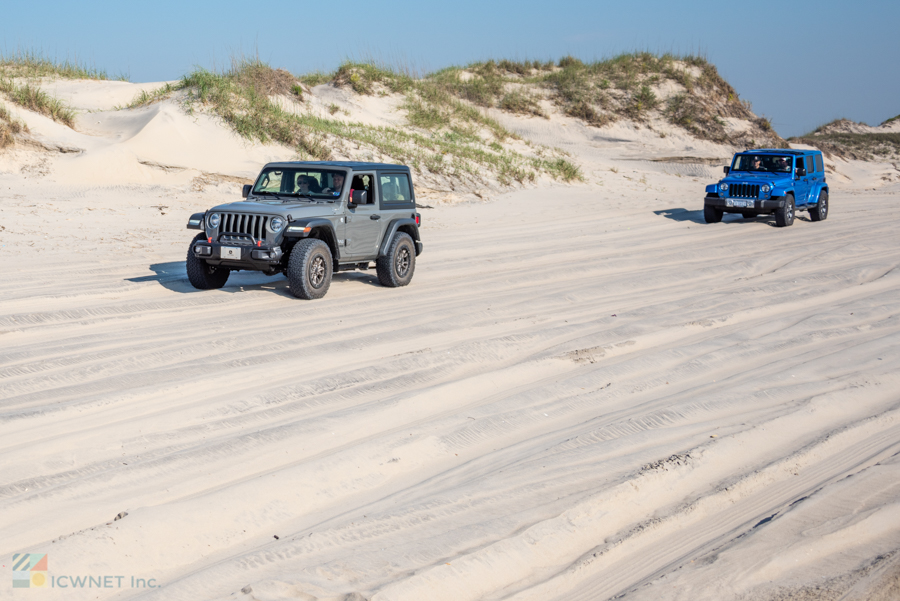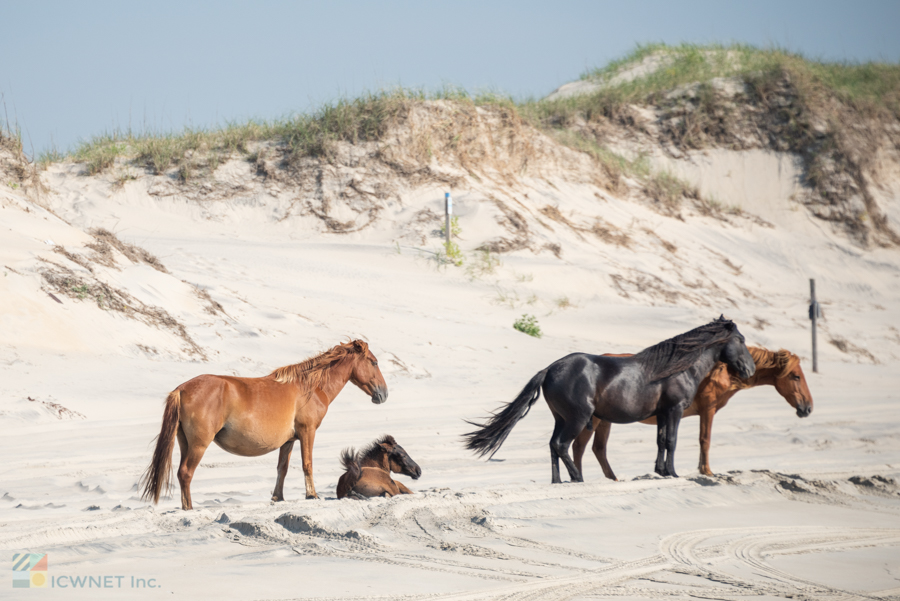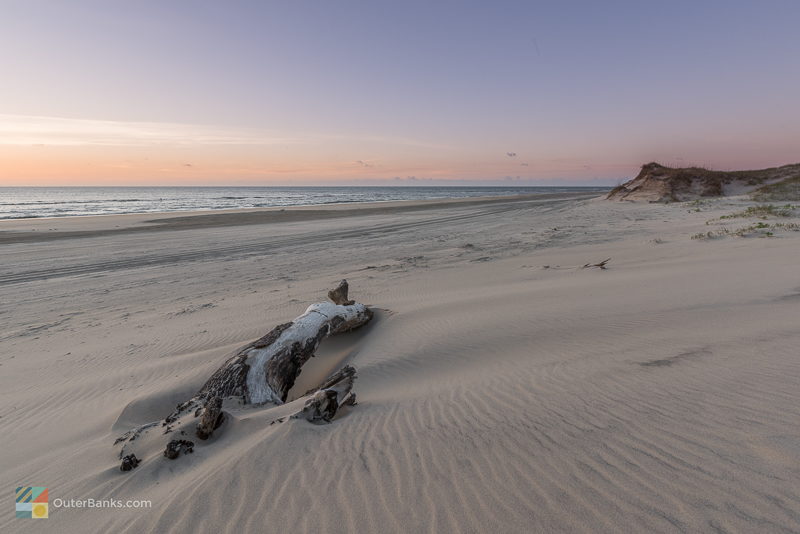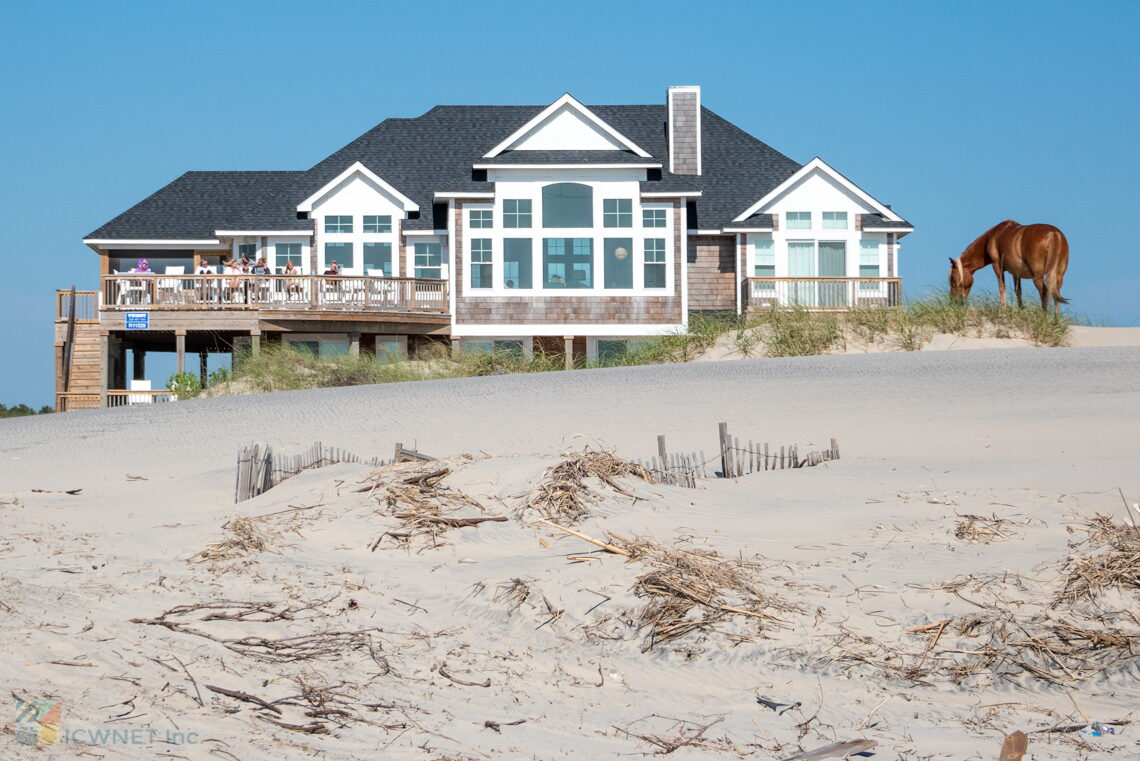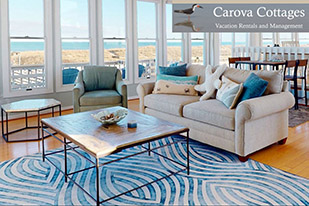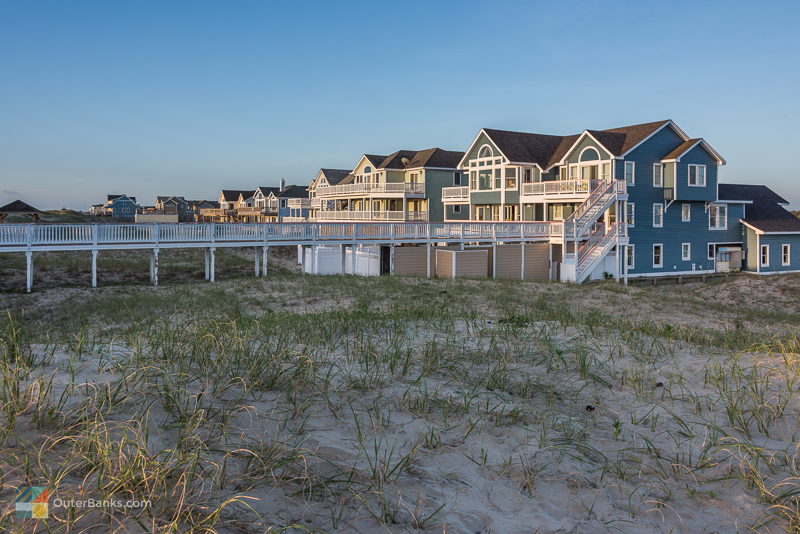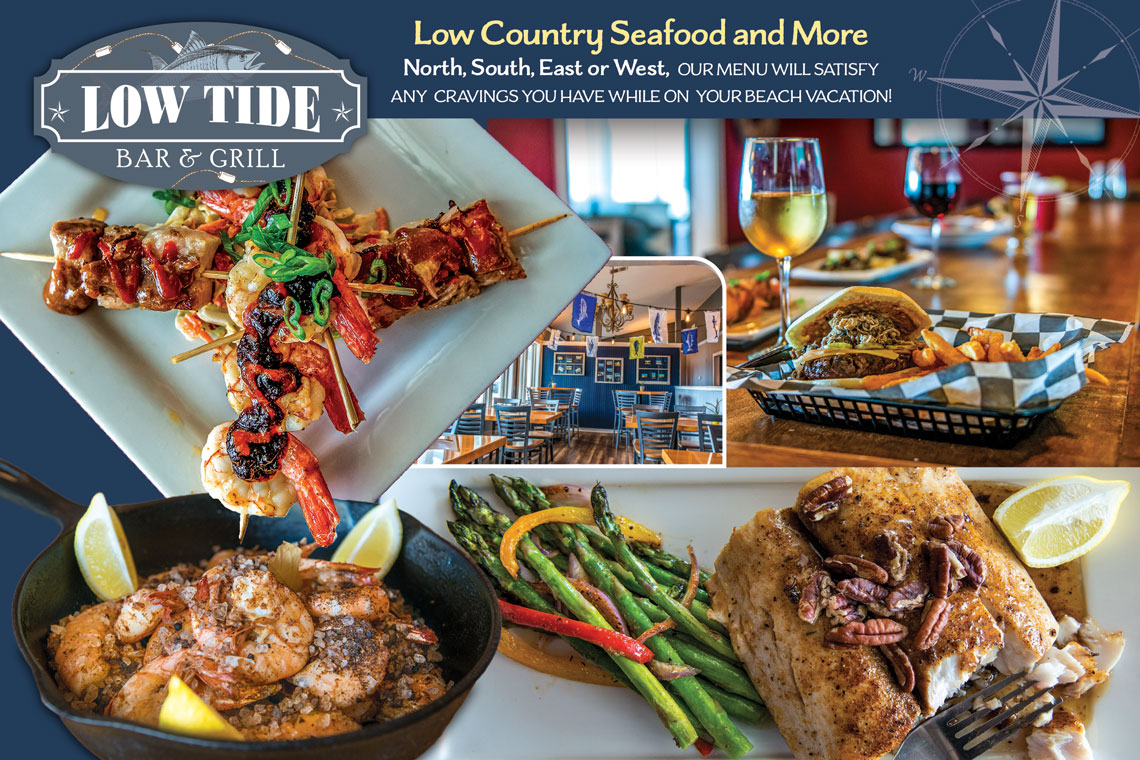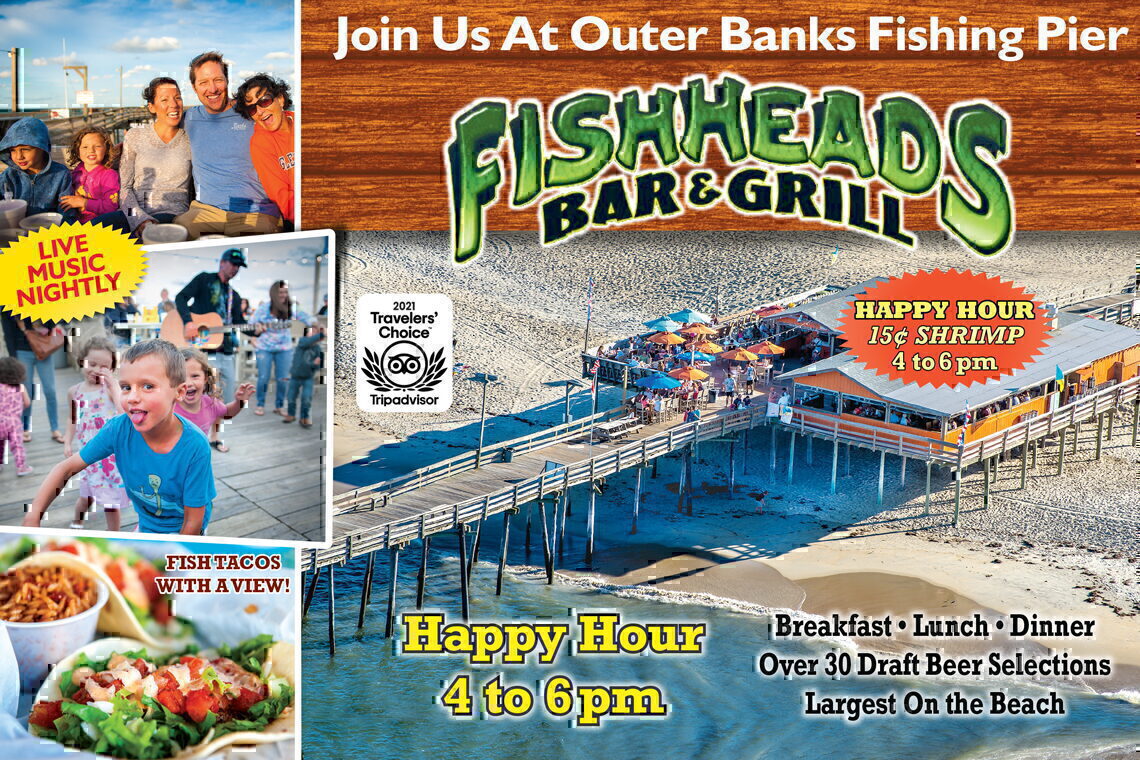Carova is the northernmost Outer Banks community, and is only accessible by the unpaved beach. Although we call Carova a "town", a better description is that it is a few neighborhoods North of NC 12 in Corolla, accessable only by 4x4 vehicles.
Summer Parking Permits for Currituck County beaches (Corolla / Carova)
https://currituckcountync.gov/beach-parking/
Vehicles MUST have a county-issued Beach Parking Permit properly displayed to park on the beach from the last Saturday of April through the first Saturday in October. Visitors renting in the 4-wheel drive area north of where the paved road ends should contact their rental company or property owner with any questions. Two parking permits should be provided to you. Visitors NOT renting in the 4-wheel drive area may purchase a weekly Beach Parking Permit online through the Currituck County website. Parking permits are limited to 300 per week and cost $50 each. Once purchased, the permits can then be picked up at the Currituck Outer Banks Visitor Center in Corolla (500 Hunt Club Drive, Corolla).
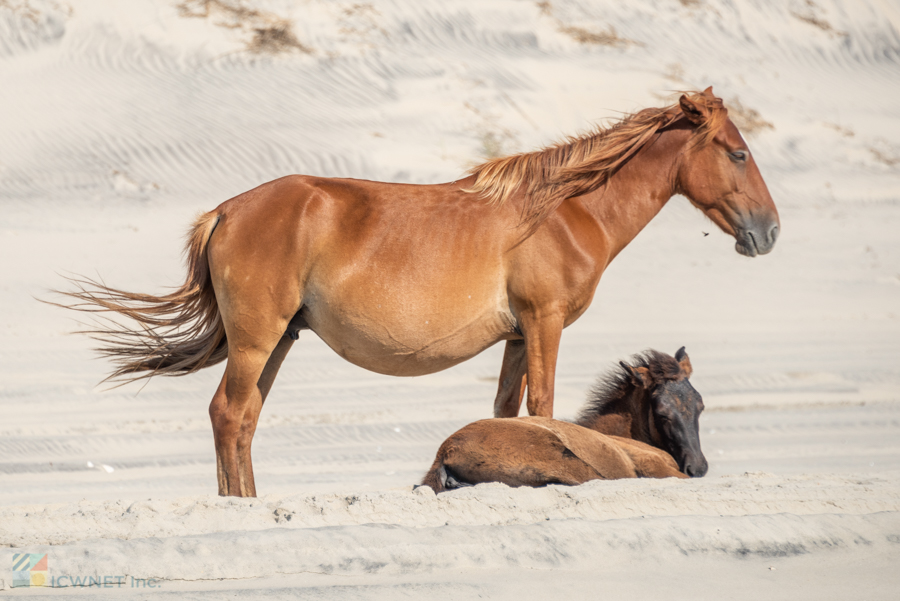
Widely considered the Outer Banks' last frontier, Carova is renowned for its miles of privacy, including clean white beaches, a scattering of rental homes, and wild mustangs that roam freely from the ocean to Carova's small residential neighborhoods. Carova's seclusion is easy to explain, as there are no paved roads leading to this vacation spot, just miles of sand tracks that border the Atlantic Ocean. Vacationers who love the beach and don't need all the extra fuss flock to the area in small crowds, soaking up private stretches of beaches, and enjoying the peace and quiet.
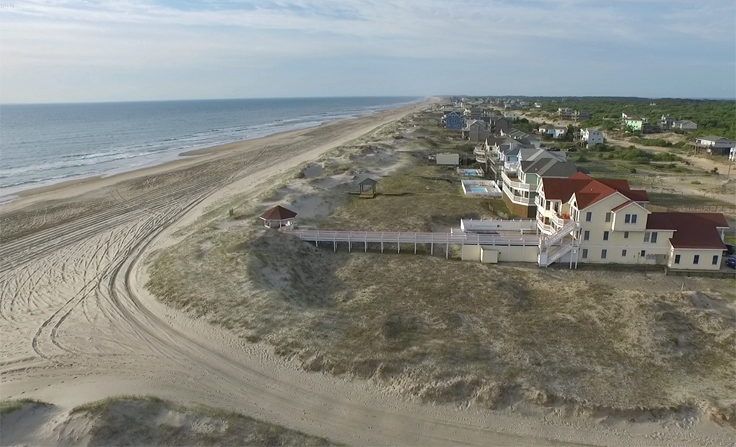
Where to Stay in Carova
There are no hotels or motels in Carova. Visitors to Carova stay at vacation rental homes (4x4 access only, mind you). Homes are generally rented on a weekly basis, with last minute partials sometimes accepted, and are offered by a number of Outer Banks vacation rental management companies.
Carova Cottages offers a unique vacation experience with upscale homes in the secluded and adventurous 4x4 area! Bring your 4x4 truck or SUV and experience the freedom you’ll find with no paved roads or commercialism. Carova Cottages has a personal service motto, and can help you find your perfect vacation home. Call us at 252-435-3970 to experience Carova; where the hard road ends and the adventure begins!
Twiddy & Company's vacation rentals are the perfect place to reconnect with family and friends and we offer the biggest selection of any company in the northern Outer Banks. From expansive oceanfront rentals to peaceful soundfront homes our Outer Banks vacation rentals allow you an infinite variety of vacation experiences. For more information, visit www.twiddy.com or call 252-457-1100.
Carova vacation homes range from affordable 2-3 bedroom cottages with the basics, to huge mansions and 24-bedroom event homes perfect for weddings and family reunions. The latter properties are sprawling beach homes with private pools, hot tubs, game rooms, deluxe home theater rooms, and multiple dining areas, allowing everyone in a large group to find a little off-the-beach entertainment.
Because the number of properties in Carova is limited, and because Carova's reputation of being one of the last true deserted beach vacation destinations is one of the Outer Banks' worst kept secrets, vacation homes can go fast. It's generally recommended that you reserve your beach vacation home a few months to a year in advance to be sure you have your pick of the best selection.
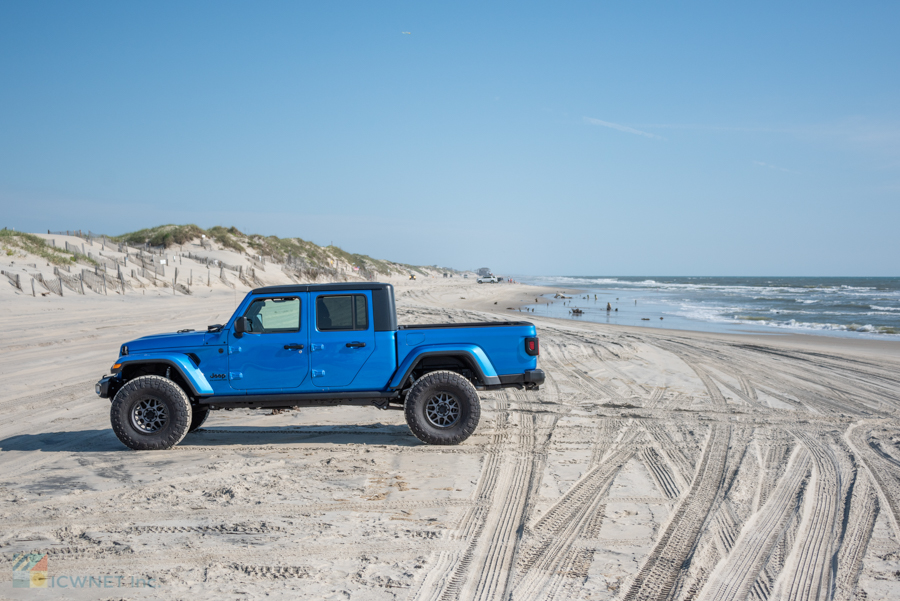
Things to Do in Carova
Anyone up for a day at the beach? With 11 miles of secluded shoreline, it's safe to assume that a lot of your vacation time will be spent seaside.
Popular Carova beach activities include:
- Lounge under an umbrella or canopy, catch up with friends and family
- Sip a beverage and watch the kids play
- Throw frisbees, play bocce ball
- Wade, swim, surf and body board
- Surf fish
- Pick up seashells
- Take a relaxing walk along the shore
- Spot and photograph wild horses
The ocean temperature stays consistently warm throughout the summer months and into the fall season, so body boarding, surfing, stand up paddle boarding, and ocean kayaking are certainly worth a try during your beach vacation. Many vacationers keep their camera ready for wild horse sightings, and the Carova wild mustangs can often be seen wandering along the oceanfront. Take plenty of pictures, but be sure and keep your distance - these wild horses may look and act docile, but they are feral and can be spooked by (and injure) approaching humans.
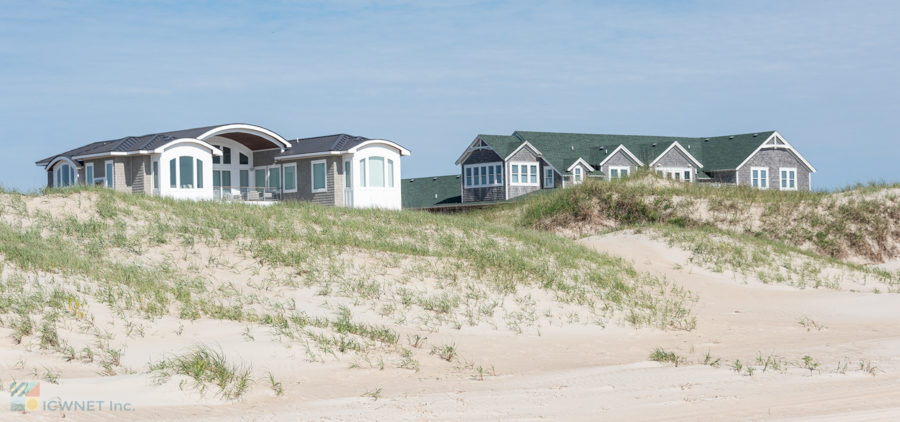
On cloudy days, Carova vacationers can easily take an excursion a few miles off the sand to Corolla and Duck and enjoy an afternoon of shopping, sightseeing at the Currituck Lighthouse and Whalehead in Historic Corolla, and an evening of dining and drinks before heading back up the beach.
For Carova day-trippers without 4WD access, guided tours are available seasonally to ride along the beaches and look for wild mustangs. Seasonal Jeep tours and rentals are also available.
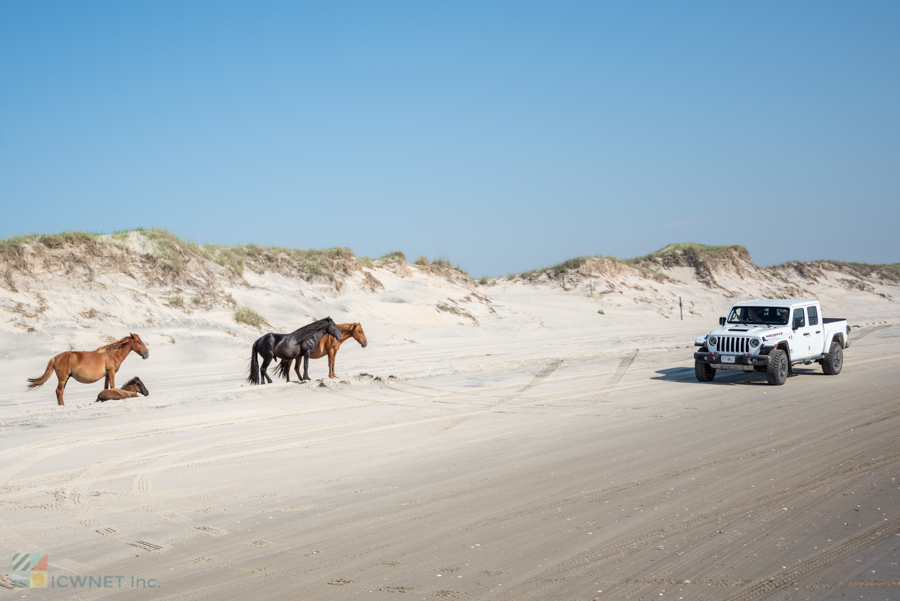
The Landscape
When NC Highway 12 ends, a ramp to the beach begins which runs parallel to the ocean and accesses the communities of Seagull, Penny's Hill, Swan Beach, North Swan Beach and Carova. The 11 mile stretch of shoreline is virtually deserted, except for passing 4WD trucks and families camped out on the shoreline.
Just past the high tide line, you'll start to see a scattering of oceanfront sandcastles peaking over the dune line adjacent to simple, sandy roads leading from the beach to small residential communities. Down these sandy lanes, you'll find a range of modern beach homes and sturdy beach boxes tucked in between dense clusters of Live Oaks, Pampas Grass and Cedars. This is the area's only form of civilization, as there are no grocery stores, shopping centers, gas stations, or commercial businesses of any kind - just small clusters of vacation homes.
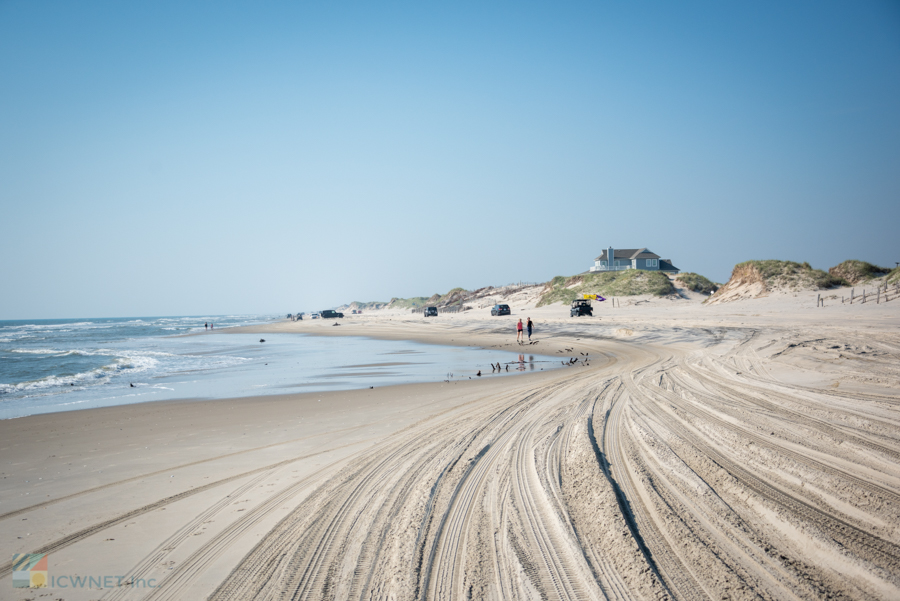
The population is generally seasonal, with a handful of hardy year-round residents thrown in, so it's not unusual to have a quiet neighborhood all to yourself during an off-season stay. Visitors who stay a week or more often spot a few wild horses during their stay, wandering through the neighborhood towards the beach, or grazing in their backyard. Most communities are within walking distance to the beach, and with no busy roads to cross - just the sandy tracks for 4WD vehicles - accessing the beach is a breeze.
What to Know Before you Go
Because Carova is literally off the beaten path, it's important to stock up on beach essentials before you check into your vacation home. Neighboring Corolla features multiple chain grocery stores for food and beach supplies, and there are even several grocery delivery services that cater to the 4WD areas for vacationers who want to truly relax.
You must have a 4WD vehicle to access Carova. There are no taxi services available. Before getting on the beach ramp, be sure to air down your tires to around 20 psi for optimal beach driving, and while driving stay on the "road," or the sand tracks that lead down the beach above the tide line. It's generally a good idea to bring along a shovel and several boards in case you get stuck, however there are several local towing companies that service the area and can assist in case of an emergency.
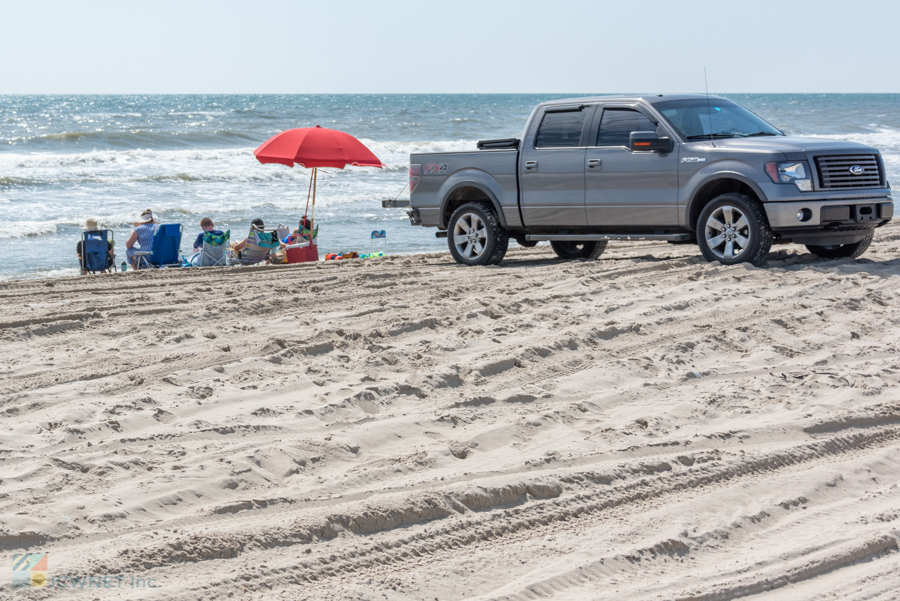
Vehicles MUST have a county-issued Beach Parking Permit properly displayed to park on the beach from the last Saturday of April through the first Saturday in October. Visitors renting in the 4-wheel drive area north of where the paved road ends should contact their rental company or property owner with any questions. Two parking permits should be provided to you. Visitors NOT renting in the 4-wheel drive area may purchase a weekly Beach Parking Permit online through the Currituck County website. Parking permits are limited to 300 per week and cost $50 each. Once purchased, the permits can then be picked up at the Currituck Outer Banks Visitor Center in Corolla (500 Hunt Club Drive, Corolla).
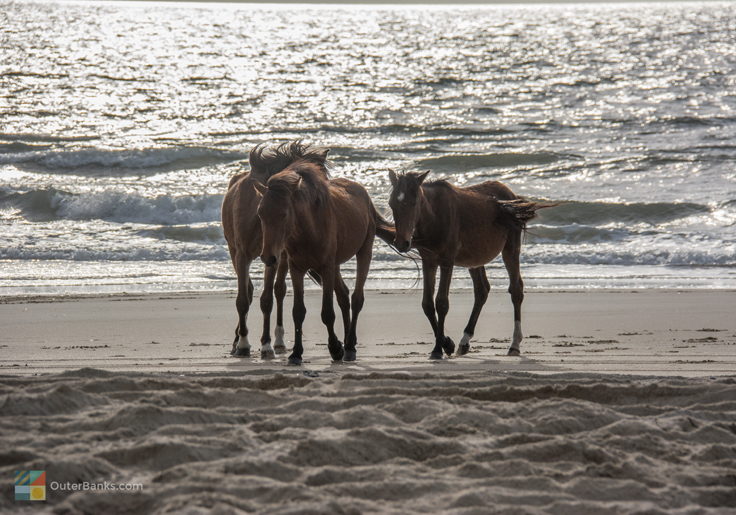
While it may seem that a Carova vacation is literally being stranded on a dessert island, remember that many of the modern vacation homes offer a world of amenities to keep vacationers in touch with civilization. Cable, Wi-Fi and internet access, heated pools, game rooms, and theater rooms are all available in a number of rental homes, and many vacation rental websites offer detailed searches so it's easy to find a rental home that fits your criteria.
Whether you decide to take a day trip for exploration purposes, or spend a week or two soaking in the quiet privacy, Carova is a vacation haven for die-hard beach lovers. Folks who truly want to get away from it all, and care more about soaking up the sun than the busier off-the-beach attractions of the Northern Outer Banks will consider Carova a paradise, complete with cool ocean breezes, good shelling, uncrowded beaches, and quiet, star-filled night skies. With so much privacy, it's no wonder that the Outer Banks wild mustangs have hung around these parts for hundreds of years.
A Little History
Currituck County, as well as the barrier island communities of Duck, Corolla and Carova that border the mainland, we all discovered and settled around the late 1660s. A very small community of local settlers and Spanish mustangs, supposed descendants of shipwrecks, laid claim to the area and lived in solitude for a couple of centuries. As the population gradually grew after the initial settlement, and borders became necessary, the people of Currituck and Virginia began a heated debate on where to draw the North Carolina / Virginia state line. In 1728, they settled on a veritable line in the sand just north of Carova, and the state border has remained ever since.
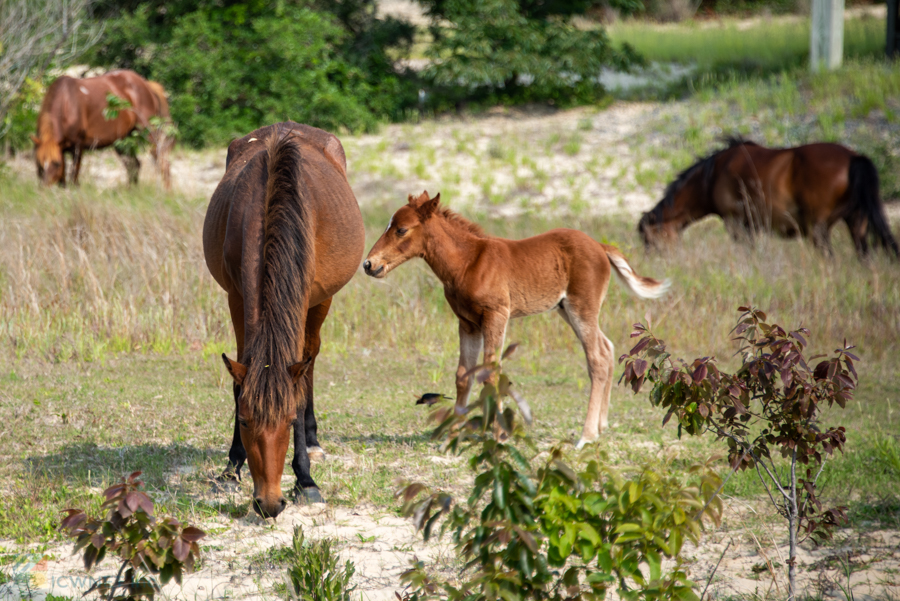
Over the decades, the Currituck beach population grew at a snail's pace, with very few new residents moving to the area, but lifesaving stations at Wash Woods, Penny's Hill, Whale Head, Poyner Hill, and Seagull were developed to assist passing sailors. The famous Currituck Beach Lighthouse was also constructed in Corolla in 1875, further assisting ships off the Carolina coastline.
By the 1960s and 1970s, tourism was starting to heat up on the southern Outer Banks towns of Nags Head, Kill Devil Hills and Kitty Hawk, and developers began to realize that it wouldn't be long before family vacationers discovered the Currituck beaches as well. Up until that point, the only folks who traveled to these desolate beaches were the occasional adventurous fishermen or duck hunter, or members of the prestigious Whalehead in Historic Corolla in Corolla. With its Virginia border, it was assumed that eventually Carova and the northern beaches would be a vacation hot spot for Virginia and DC area city folks, and the population and development would explode.
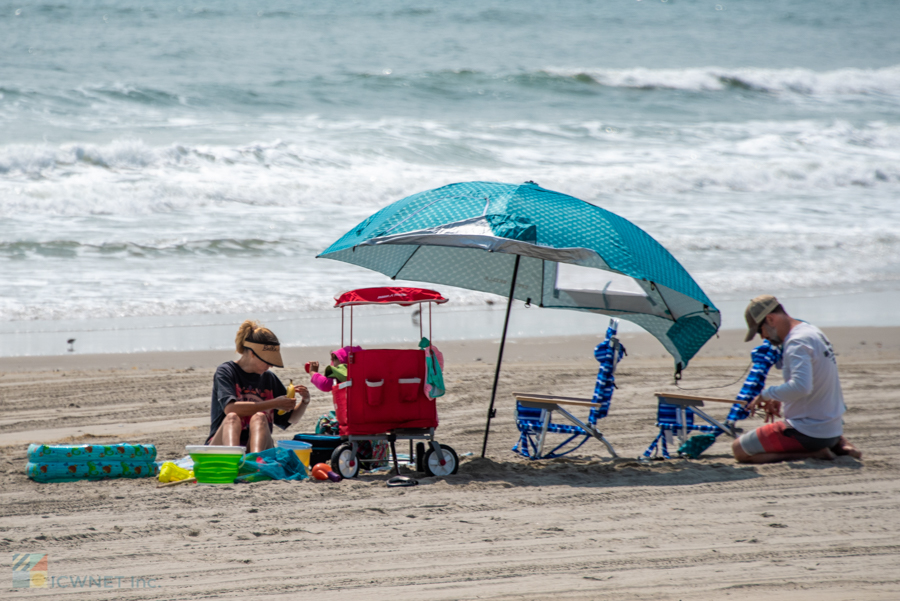
But by the time NC Highway 12 was completed all the way to Corolla in 1984, the government as well as private investors had already laid claim to much of the undeveloped land, forming refuges, parks and reserves, and a paved road through the area became impossible. A few homes were built, and continue to be developed for beach lovers, but it seems that Carova will always enjoy the distinction of being separate from the paved and popular southern towns of Corolla, Duck and Southern Shores, and worlds away from the traditional vacation.
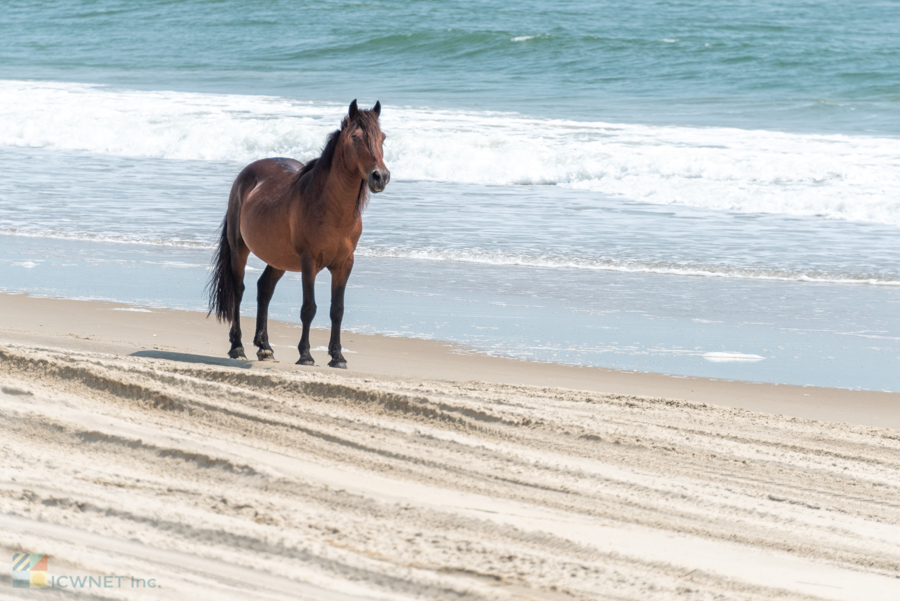
Frequently Asked Questions
Where is Carova, NC?
Carova, NC is the northernmost community on the Outer Banks and is part of Currituck County. The term “Carova” is often used to refer to all of the neighborhoods in the 4WD area of the northern Outer Banks, including Swan Beach, North Swan Beach, Carova Beach and Ocean Beach.
What is there to do in Carova, NC?
Carova is known for its pristine and undeveloped beaches which extend for 12 miles from the northern border of Corolla to the North Carolina / Virginia state Line. As such, it is a popular destination for fishing, beachcombing, surfing, swimming, and enjoying the isolated shorelines. The area is also popular for its famed wild horses, and its two nature reserves: the Currituck National Wildlife Refuge and the Currituck Banks Reserve.
Are there any paved roads in Carova?
There are no paved roads in Carova, or any of the 4WD communities north of Corolla.
Where are the beach accesses in Carova, NC?
Visitors can access any of the beaches in Carova with a 4WD vehicle, as all beaches are open to the public. Beach driving permits are not required in Corolla/Carova.
What are the attractions in Carova, NC?
Carova is most famous for the herds of wild horses who freely roam the beaches, and who are believed to be descendants of Spanish Mustangs that were shipwrecked in the 1500s. The area is also home to the Currituck Banks North Carolina National Estuarine Research Reserve and the Currituck National Wildlife Refuge.
Are there grocery stores in Carova, NC?
There are no grocery stores in Carova and the 4WD areas of the Currituck Banks. However, a number of grocery stores can be found in the neighboring town of Corolla.
Are there shops and restaurants in Carova, NC?
There are no shops or restaurants in the 4WD area of Carova. Visitors can head south to the town of Corolla for ample shopping and dining options.
Where do you stay in Carova, NC?
Visitors in Carova and the 4WD area can stay in weekly vacation rental homes that can range from 2 bedroom cottages to 20 bedroom or more estates. There are no hotels or motels in Carova, however there are a wide variety of accommodations in the neighboring town of Corolla.
What can you do on a rainy day in Carova, NC?
Visitors can head south on a rainy day to explore the various attractions in Corolla and Duck. Popular destinations in these areas include the Currituck Beach Lighthouse, the Whalehead Club, and a wide array of shops and restaurants.
Are pets allowed on the beach in Carova, NC?
Pets are allowed on the beaches and Carova and the 4WD areas, but should be kept on a leash due to vehicular traffic along the shoreline.
Can I drive on the beach in Carova, NC?
Carova is only accessible by a 4WD vehicle, and visitors can drive all along the 12 miles of beaches north or Corolla. The speed limit throughout the area is 20 mph unless otherwise posted.
Do you need a permit to drive on the Carova beaches?
Visitors do not need a permit to drive on the Carova beaches, however they must have a permit to park during Summer months. Vehicles MUST have a county-issued Beach Parking Permit properly displayed to park on the beach from the last Saturday of April through the first Saturday in October. Visitors renting in the 4-wheel drive area north of where the paved road ends should contact their rental company or property owner with any questions. Two parking permits should be provided to you. Visitors NOT renting in the 4-wheel drive area may purchase a weekly Beach Parking Permit online through the Currituck County website. Parking permits are limited to 300 per week and cost $50 each. Once purchased, the permits can then be picked up at the Currituck Outer Banks Visitor Center in Corolla (500 Hunt Club Drive, Corolla).
How do you get to Carova without a 4WD vehicle?
Visitors can rent a 4WD vehicle from several businesses in the neighboring town of Corolla. In addition, there are a number of tours that access the shorelines of Carova and the northern Outer Banks.
What are the wild horses of Carova?
The wild horses of Carova are thought to be descendants of Spanish Mustangs that were shipwrecked in the northern Outer Banks in the 16th century. The wild horses freely roam the beaches, and can often be spotted along the dunes and neighborhoods of Carova.
How do you see the wild horses of Carova?
Visitors can drive along the beach or rent a vacation home in Carova to see the wild horses, which frequent the shoreline, dunes, and the area’s wooded neighborhoods. In addition, there are a number of 4WD tours available that launch from the adjacent town of Corolla.
Are there shells in Carova, NC?
Because of Carova’s isolation, the area is a great destination for shelling. Visitors can expect to find an array of North Carolina shells, including whelks, augers, wentletraps, scallops, olive shells, and rare Scotch Bonnets.
Are beach bonfires allowed in Carova?
Beach bonfires are not permitted in Carova or any of the 4WD area beaches.
When is the best time to visit Carova?
The summertime is the most popular season for visitors, due to the warm weather and warm ocean temperatures. Fall and spring are also good times to visit, especially for fishermen and surfers.
What are the average air temperatures each month in Carova?
January - high: 52°, low: 32°F
February - high: 56°, low: 33°F
March - high: 63°, low: 39°F
April - high: 72°, low: 48°F
May - high: 79°, low: 56°F
June - high: 86°, low: 66°F
July - high: 89°, low: 70°F
August - high: 88°, low: 69°F
September - high: 83°, low: 63°F
October - high: 74°, low: 52°F
November - high: 65°, low: 42°F
December - high: 56°, low: 34°F
